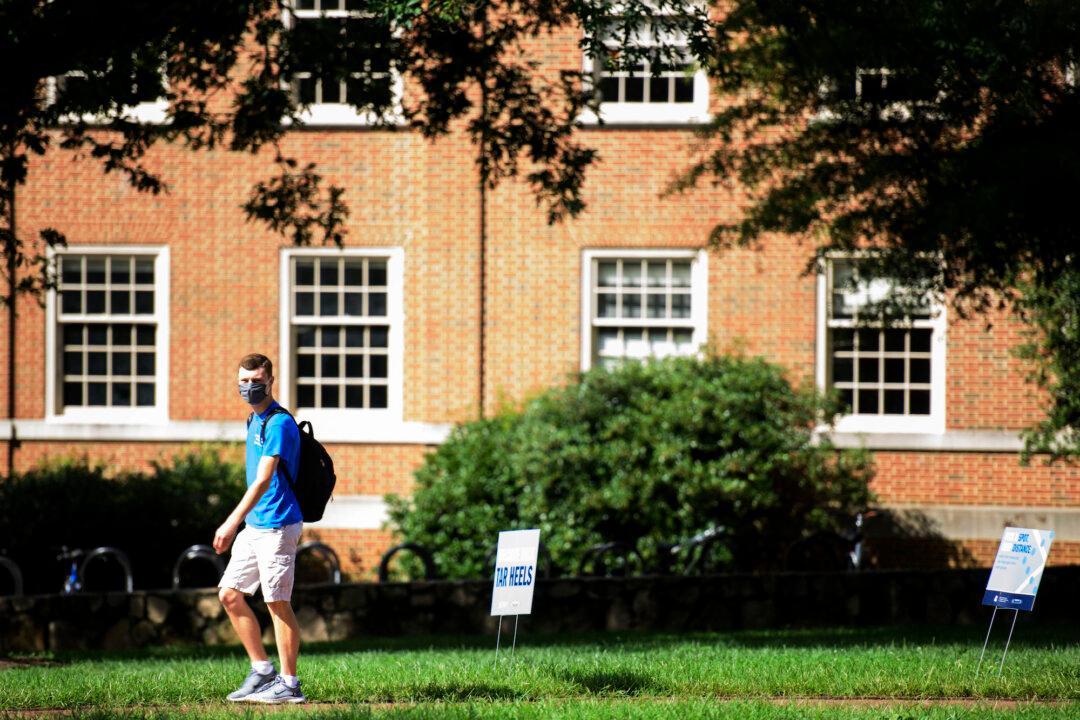Student leaders of the University of North Carolina at Chapel Hill are raising objections to the school’s COVID-19 policies, which they say are not strict enough to ensure safety of the already overwhelmingly vaccinated campus.
At a Sept. 2 meeting, a group of student leaders read a statement released by UNC Student Government titled, “Enough is Enough,” in response to the university’s approach to public health for the fall semester.





